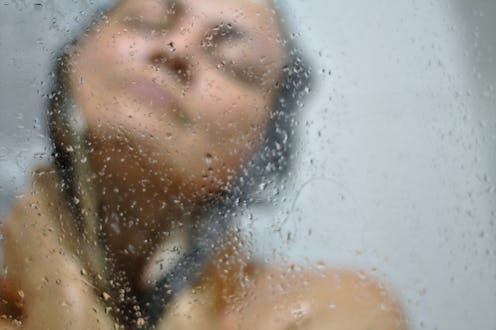Style
7 Hygiene Myths, Busted

When it comes to personal hygiene, we all have different habits, so hearing what other people do or what magazines recommend can have us questioning if we are doing things right. Despite what you have heard from your friends or coworkers, there are a number of hygiene myths that just aren't true, and it's time to put these rumors to rest. These incorrect assumptions may have persisted for some time now, but that doesn't make them any less inaccurate.
With so much information circling on the internet, it's no surprise that many misconceptions about our health and our bodies gets perpetuated. One scroll through Pinterest and you might be lead to believe some false promises or bogus facts that may have you second-guessing your morning regimen. It can difficult to separate fact from fiction without some expert help.
Some myths you may already have suspected, and some might surprise you, but the more you know, the better able you will be to take care of yourself the right away — and perhaps it will even take away some of your worry. Next time you're not sure if you are practicing self-care right, consider these seven hygiene myths that aren't really true.
1. Your Sweat Smells
"Nowadays, the general perception is that our sweat smells and it is what gives us our natural body odor," says general surgery resident Alina Baciu to Bustle over email. "However, this is incorrect as 99 percent of our sweat is composed of water, and it is odorless." The apocrine glands, found in the armpits, secrete sweat with a higher content of proteins, and some of these proteins have odorant molecules bonded to them. "The bacteria living in our armpits decompose the proteins in our sweat, releasing these odorant molecules," says Baciu. "This is actually why our sweat has a scent, and sometimes a very unpleasant one."
2. Public Toilets Are A Breeding Ground For Disease
So you accidentally touched the toilet seat when you were squatting — now what will happen? Probably nothing. "While it probably is true that a great deal of them are very unclean and filled with bacteria, it is extremely rare that someone catches a disease from using a public restroom," says Baciu. "Touching the seat with your thighs for a brief moment will not get you infected, as microbes are not that quick to migrates down to your private area."
3. You Shouldn't Moisturize Oily Skin
If you have oily skin, you might think it's best to shy away from moisturizers, but your skin may actually be too dry, which is why your body is trying to naturally produce more oil. "Oily skin requires moisturizing just as much as dry skin," says Baciu. "Using a light moisturizer for oily skin will curb sebum production within skin glands."
4. Not Brushing Or Flossing Only Damages Your Teeth
So you haven't been to the dentist in a few years, no big deal, right? Wrong. Oral hygiene is more important than just protecting against cavities and gum disease. Poor oral health can harm your heart health and increase your risk of diabetes, osteoporosis, and Alzheimer's disease, according to Mayo Clinic.
5. It's Better To Pop A Pimple
"The truth is, even though it feels really good to pop it, a lot can go wrong when we start picking," says dermatologist Heather D. Rogers, MD over email. "We often pick too much creating a bigger wound for our body to heal. And when we squeeze we can push some of the pus deeper into the skin, causing more inflammation."
6. You Can Train Your Hair To Not Get Greasy
Contrary to popular belief, not washing your hair for a few days won't make it any less greasy later on. "Washing your roots and scalp helps remove surface grease and dead skin cells and helps you maintain healthier strands," says Tsippora Shainhouse, MD, FAAD over email. "It also helps remove hair care products, as well as dandruff-causing yeast that thrives in grease."
7. You Should Shower Every Day
Showering daily is more of a social norm than an actual necessity. Too frequent showering can dry out your skin and your hair, and it can strip your skin of its natural oils and immune-system supporting bacteria, according to Time.
Everyone has their own personal hygiene, but don't feel obligated to believe everything you hear from your friends or from what you see on the internet.
Images: Pixabay (8)